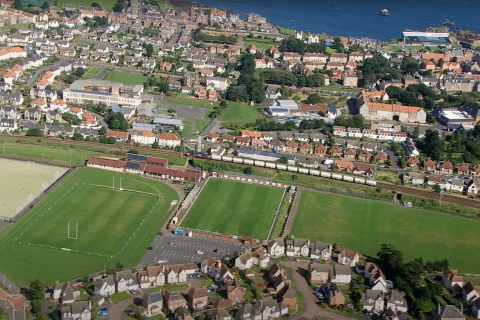Overlap construction works closes Dutch-German border all weekend

Rail freight traffic on the Rhine-Alpine corridor has faced significant disruptions over the weekend as construction works on the Dutch-German border faced delays. As a result, two vital border crossings between the Netherlands and Germany were closed at the same time. The impact on international rail freight traffic is expected to be witnessed throughout this week.
Construction work at the Dutch border city of Venlo was supposed to be completed before the weekend, but faced delays. On Monday 13 September the border crossing Venlo-Kaldenkirchen was opened for traffic, 72 hours later than planned. In the meantime, construction work at the German city of Emmerich started this weekend, temporarily closing the Emmerich route. This work was planned and started on time.
The border crossing via Emmerich and Venlo are the two most consumed routes for rail freight traffic between the Netherlands and Germany. Over the weekend, only the route via Bad Bentheim remained available, to the frustration of the industry. The closing of thwo vital border crossings has a huge impact on rail freight traffic, various industry players have said.

Frustration
“DB Netz paralyses the European Rhine-Alpine corridor. Unbelievable, this has ‘Rastatt quality’”, wrote Thomas Knechtel from the Network of European Railways (NEE) on Linkedin this weekend.
“DB Netz closes the Rhine-Alpine corridor as far as possible by closing the Emmerich and Kaldenkirchen border crossings at the same time. Yesterday morning it was already known that the work in Kaldenkirchen would be delayed”, was a comment from Hans-Willem Vroon from industry group RailGood.
According to Vroon, the Botlek and Europoort terminals in Rotterdam were working over the weekend. “Other freight stations in and near the port of Rotterdam are therefore operating at full capacity. The rail logistics line in Europe’s largest port Port of Rotterdam will again be severely affected by the middle of next week”, he predicted on Sunday.
Text continues below the image

Cooperation
The frustration of the industry is also about the lack of coordination between the respective infrastructure managers, as they should work out contingency plans in times of line closures. This is something that was decided after the Rastatt debacle, which paralysed the same corridor for a long time.
Vroon added that this cooperation was even more important considering the construction work in Belgium, due to which the border crossing at Aachen had limited capacity. “Such factors should be taken into consideration when planning construction work.”
“Infrastructure managers are organised differently in all EU countries, and therefore their plans are totally different”, commented Roland Scholten from Rolsch Rail rail-logistics on LInkedin. “The railway is no longer a system, but many completely self-sufficient sub-organizations.”
“The damage to customers and utilities is enormous. Once again, it should be noted that when building, it must be ensured that the alternative routes have been made afloat beforehand and that spare parts and mobile service have been brought into position if something does happen”, added Sven Flore from SBB Cargo to the post.
You just read one of our premium articles free of charge
Want full access? Take advantage of our exclusive offer






This also clearly stipulates the need for effective multilayer system redundancy.
Don’t put all cards on one or two intensively used & ETCS-equipped mainlines ( = corridor thinking). E.g. Nijmegen>Kleve>Xanten should be rebuilt & electrified for mainly one-directional (!) cargo only during daytime (night close to make it more acceptable).
In case of incidental network emergencies, such regional lines can be temporarily used ‘full loaded’, and also during the night, evt. with reduced speed.
In addition also the line Kleve-Geldern-Krefeld could act well as a strategic rail-backup for Rotterdam-Germany-cargo. In normal daily operation, passengers traffic and the climate will benefit from electrification, so that would be a clear win-win for multiple interests.
The noise, space and environmental safety issues in Groesbeek can be solved with a tunnel. This also avoids unwanted new level crossings safety risks, and makes it in line with Dutch railway safety policy.
Nijmegen -Kleve will never com to live again. Result from Groesbeek´s obstruction or railways,they want busses.